Recently I put a few Bluefin car toppers through a quick run at the Broadwater so here is a bit of a heads up on what boats suit what applications.
There are a few key factors to consider when buying a car topper and I have outlined some that I think are important. First, how much does it weigh? This is a very important point, especially if you intend carrying the boat on top of your car. Not just for ease of lifting on and off the roof (although essential too) but because you have to know how much weight your car can legally carry. Most vehicles have it listed in their specifications, but if you are not sure check with the manufacturer or a roof rack specialist. Remember it is the total weight, which includes the roof racks and anything else on them.
Then you need to have an idea of where you are most likely going to use your car topper. Will it be in skinny water and shallow creeks, or do you intend to head offshore to close-in reefs?
You have to take this into account because different hulls are designed to handle different conditions. What size do you want or more importantly need? Again this comes back to where you are mainly going to use your car topper and how many people it will be carrying.
Easy of handling is also something to consider. It is no use having a big boat if you can’t easily get it on and off the roof to launch. You won’t use it as often if it is too hard to handle.
What size outboard will you need? Obviously you want your boat to perform at its optimum, so matching the right outboard is very important. So you will want to factor in the weight of the outboard and what is manageable for your situation. Some car toppers may perform very well with just an electric or very small outboard, while others will need something near the upper end with either a 15 or 20hp motor.
Performance and or stability are also points to consider. In a small boat you sometimes sacrifice one for the other, so deciding on where you will be using the boat is very important. Clearly there are more details to think about but these should have you heading in the right direction for your ultimate car topper.
I put six different models to the test and have outlined how they performed and what types of environments they would be best suit to.
Tinoo
As the name suggests this is a cross between a tinnie and a canoe and is the original skinny tinnie. The Tinoo comes in sizes, 3m and 3.75m, weighing 35kg and 38kg respectively. These boats have a beam of 85cm and a depth of 36.5cm, making them ideal for use in the upper reaches of creeks and estuaries.
Performance with an electric is more than adequate, but they are rated to a maximum horsepower of 3hp (3m) and 4hp (3.75m). As an alternative you can also paddle these boats. I have previously tested this boat with two large adults and an electric and while care needed to be taken you could stand up and fish. Ultimately if you are after a tough very lightweight fishing boat for protected waters this would be your pick.
Jon Boat
While similar in design to the Tinoo, the Jon Boat gives you a bit more freedom with its different applications. With 3m and 3.65m models, weighing around 45kg and 53kg and rated to 6hp and 10hp respectively, you once again have a good lightweight vessel that is easy to load and unload. The beam on the Jon Boat comes in at 1.165m which is a reasonable size and gives more stability at rest than the Tinoo. Additional features include fully-welded seats and an extruded keel and chines which all go into making this a strong, yet relatively lightweight car topper option. It is also a great electric-only boat which can be fitted out with casting platforms (check out the Blue Fin website for a picture of a Jon Boat that has been tricked up).
Catfish
This model is your traditional punt and comes in 3m, 3.65m and 4.3m. However, the two smaller versions mostly lend themselves to the car topper category. While similar in length to both the Tinoo and Jon Boat the Catfish has a much wider beam of 1.26m.
This width combined with a flat hull gives increased stability. The flat hull is very efficient through smooth water and enables smaller engines or even electrics to provide sufficient power, depending on conditions. Maximum horsepower ratings for the 3m is 6hp and 10hp for the 3.65m. While relatively light with a weight of 50kg for the 3m, and 58kg for the 3.65, the Catfish still maintains strength in the hull with six 25mm deep pressings in the single hull sheet. This design gives extra strength so when you stand on the floor it remains sturdy. Predominantly designed for rivers and calm waters, this model would make an excellent choice if you were planning to hit the barra dams and estuary systems.
Drifter
The Drifter is more along the lines of a traditional shaped tinnie, although the hull is a new elliptical design from Blue Fin aimed at having the stability of punt-style boats with the ride and performance of a dinghy. Manufactured in a variety of sizes from 3.4m up to 4.3m, it is the smallest model in the range, and is a good all-round car topper suited to a variety of conditions. Although 3.4m doesn’t seem that long, this boat felt bigger once inside. This is due to the increased beam of 1.45m which is substantially wider than the other boats. The hull depth has also been increased to 50cm, hence the feeling of a larger boat.
However, the Drifter is a bit heavier than the other models at 80kg. This is getting near the maximum weight you want for a car topper, but is easily legal to carry on a number of vehicles and also able to be loaded with a specific boat loader. Rated to a maximum 15hp (which is what we tested it with) it had ample power and can be handled relatively easily by one person. But I do think you could get away with a smaller engine and still achieve good performance. Once again this comes down to the weight of engine you feel comfortable loading and unloading or how much weight you can carry with your vehicle setup. Some standard features of the Drifter include side pockets, transducer brackets and grab handles.
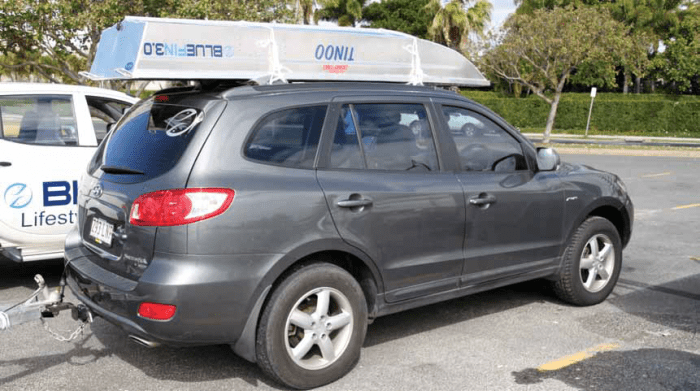
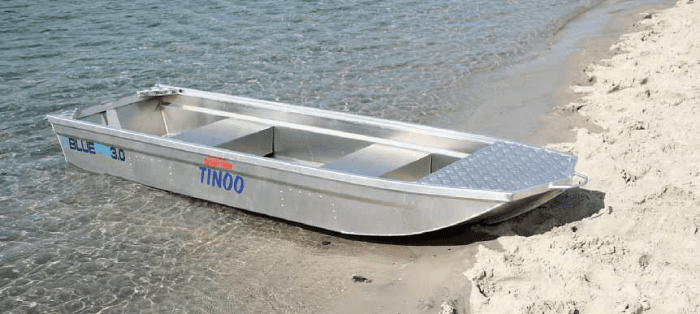
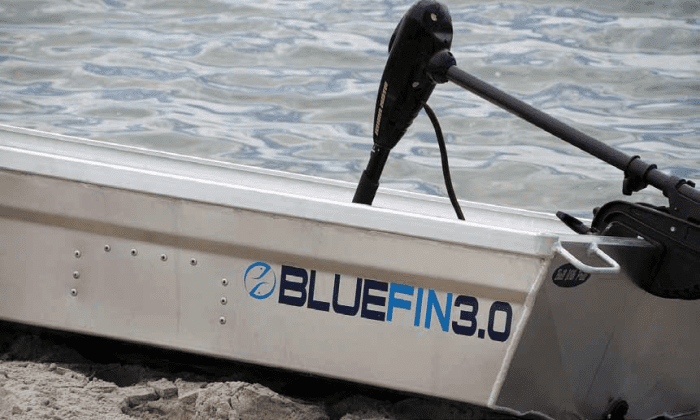
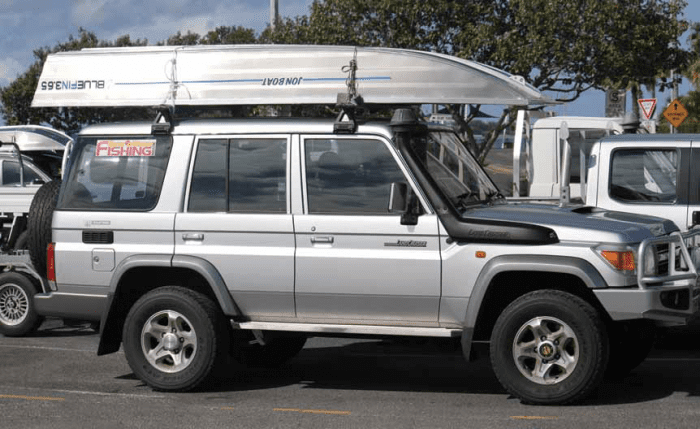
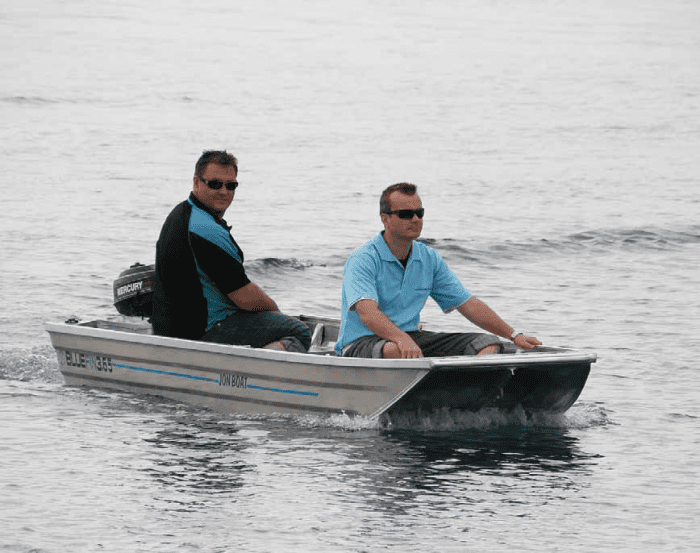
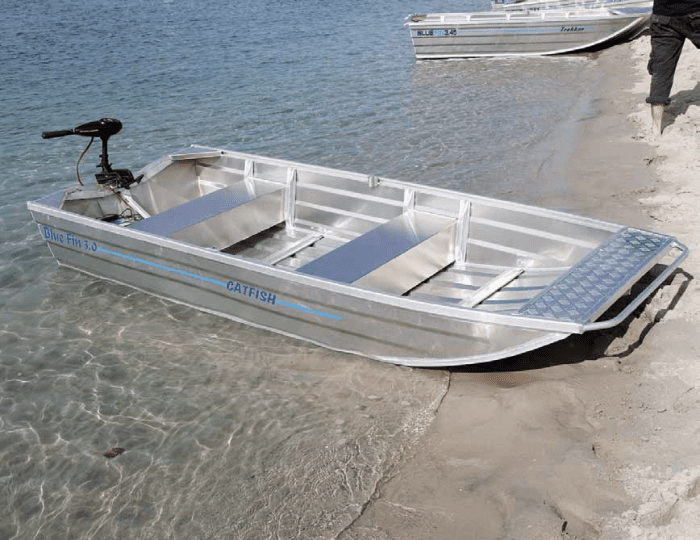
electric motor or outboard.
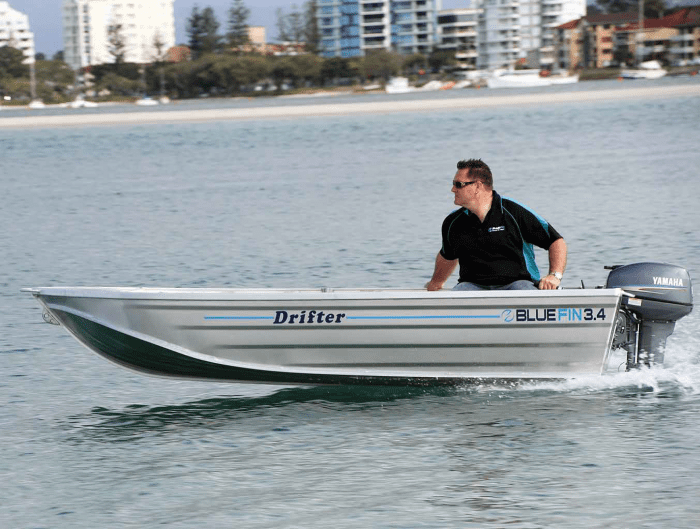
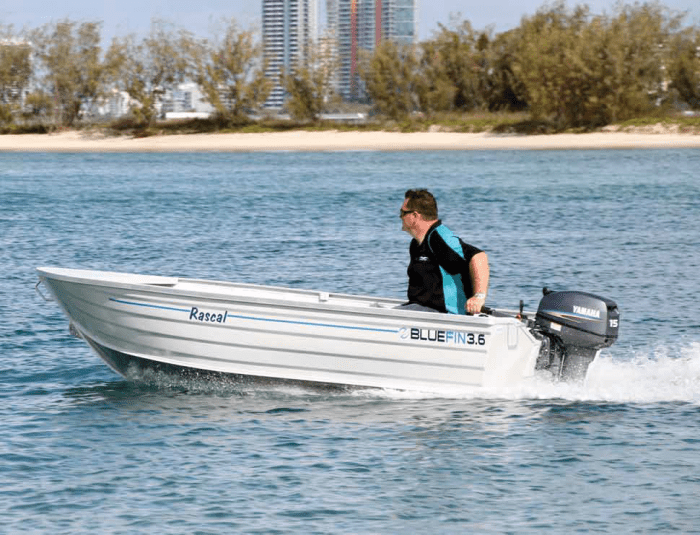
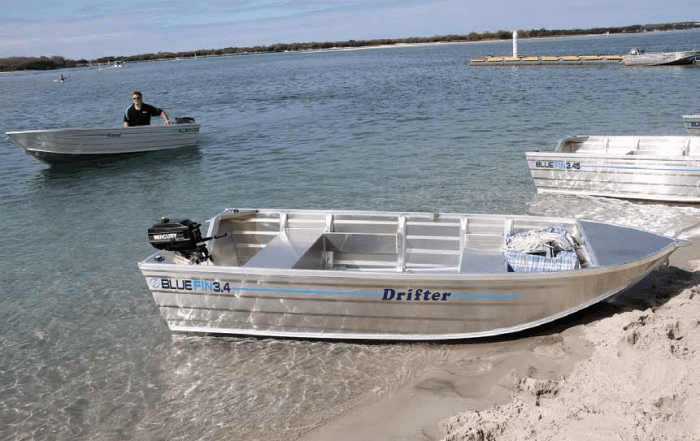
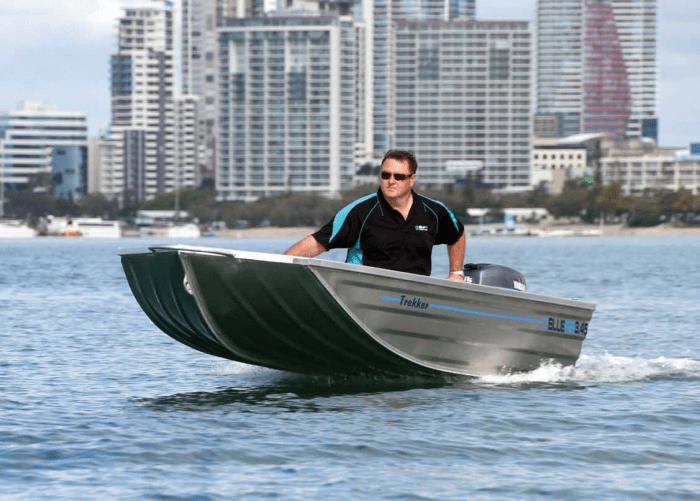
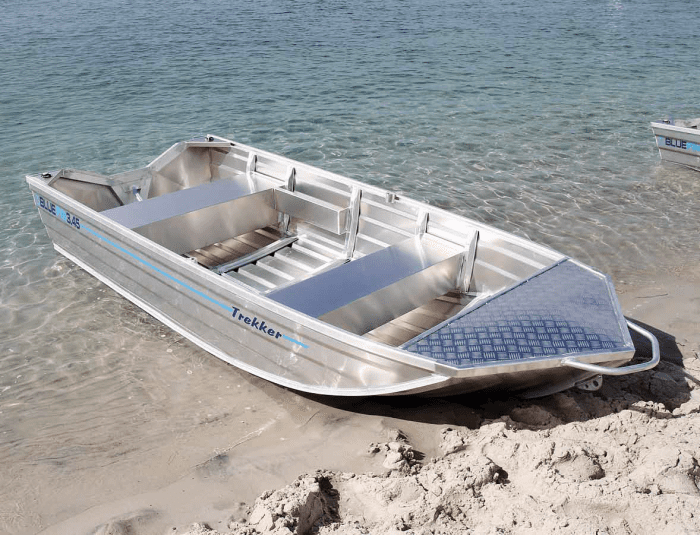
At first glance the Trekka probably isn’t as aesthetically pleasing with its sharper lines, but I personally like this type of boat. Retaining some of the more traditional features of a punt with the flat bottom and wide beam, the Trekka is a good choice for a car topper. Available in models from 2.95m through to 4.3m, it is the 3.45m that stands out as the ideal option with total weight of around 80kg and rated to a maximum of 15hp. These are all good numbers, albeit towards the top end of what is considered manageable. The flatter hull of the Trekka means it gets on the plane more easily, so it would perform with a smaller engine. That also means it’s more stable at rest, which can be attributed to the wide beam of 1.48m. A rugged V-nosed punt entry line assists in the rougher conditions and the large foam-filled seats provide level floatation for increased safety. Overall a very well-balanced option suited to both calm water and slightly rougher conditions.
Rascal
This was the largest of the test boats and with a length of 3.6m, beam of 1.66m and hull depth of 65cm you have a substantial boat capable of performing in various conditions. The Rascal falls under the heavy-duty dinghies banner of the Bluefin Boats range, but is still a capable car topper with a weight of 80kg. Even though this boat is rated to a maximum horsepower of 20, the 15hp it was tested with was a good match. Again, it obviously depends on how you intend to use the boat, but if only going to carry one or two people, the 15hp would suffice. However, if you were planning on having three people and a bit of gear the 20hp might be the better option.
Coming standard with side pockets, front flat deck, grab handles and anchor shelf, you have a few more features packed in to make it a very versatile rig. If you plan on heading to some croc-infested rivers in the depths of Queensland or the Northern Territory this would be your pick, with its higher sides providing more protection. But regardless of which boat you choose, remember it is important to have an understanding of how you intend to transport it, including carrying weights and roof rack widths, so that getting on and off is a relatively easy task. That way you will find yourself using the car topper more often and locating untouched bits of paradise on your next fishing adventure.
For more information on the range of Bluefin Boats check them out on their website at www.bluefinboats.com.au or drop in to your local dealer for a chat.
 Bush ‘n Beach Fishing Magazine Location reports & tips for fishing, boating, camping, kayaking, 4WDing in Queensland and Northern NSW
Bush ‘n Beach Fishing Magazine Location reports & tips for fishing, boating, camping, kayaking, 4WDing in Queensland and Northern NSW






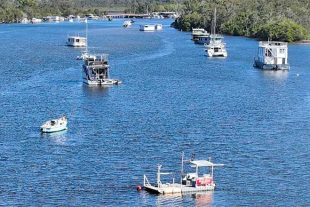
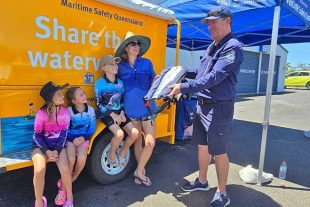
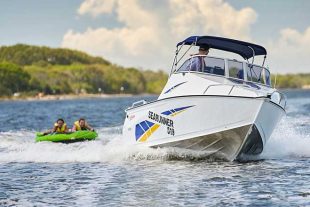

Just wanted a price for the punt style catfish
hi, where in queensland can i purchase the skinny tinoo tinny, about 12ft. i live on the sunshine coast 4558.